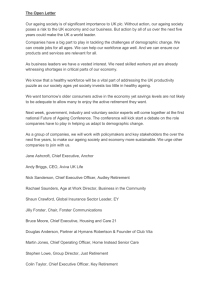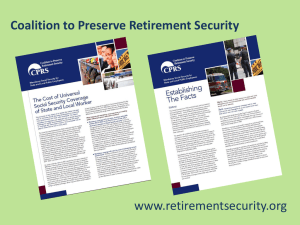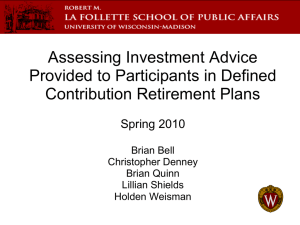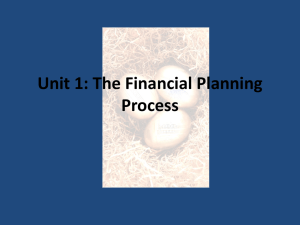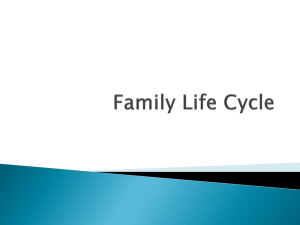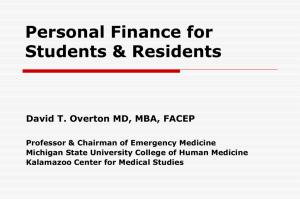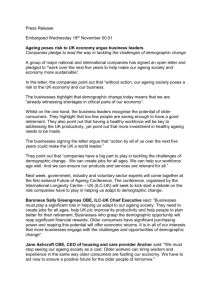After(work)life
advertisement
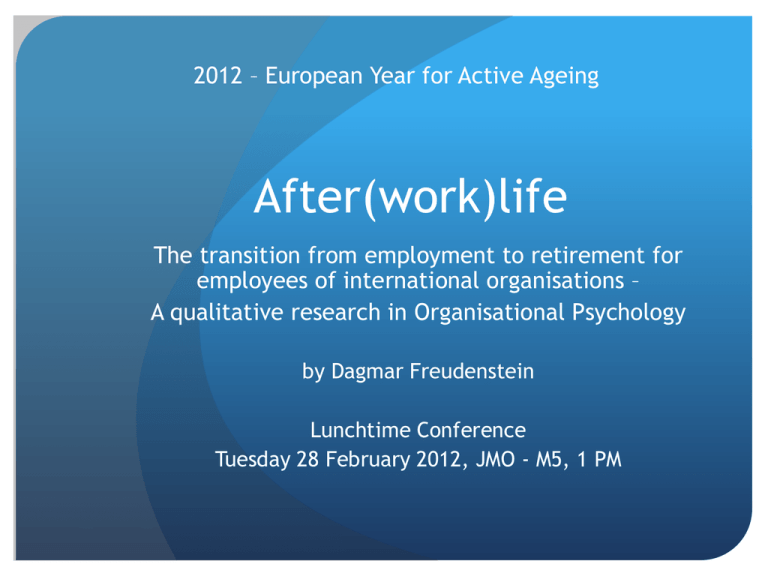
2012 – European Year for Active Ageing After(work)life The transition from employment to retirement for employees of international organisations – A qualitative research in Organisational Psychology by Dagmar Freudenstein Lunchtime Conference Tuesday 28 February 2012, JMO - M5, 1 PM 2 Change as a constant of life „There is nothing permanent but change“. Heraclitus of Ephesus (ca. 500 B.C.) 28 February 2012 „But this structure of the office I did not miss, after my retirement. I put my briefcase in a corner, and today, three years later, it is still there, still not unpacked.“ Retired EU official 3 Overview Background Psychology of Ageing Methodology Questions – main themes Questions – in detail Results 28 February 2012 4 Background Retirement is literally a life changing event in the existence of every employee. What might happen if after retirement both the geographical and the social context change radically, as it is often the case when EU employees retire? >>> Starting point of this research. Switzerland is very advanced in retirement research. State of research for employees of international organisations? 28 February 2012 5 28 February 2012 Frankfurter Allgemeine Zeitung, 25/4/2011 6 Psychology of ageing Old age ≠ Dementia; The cognitive abilities can be maintained throughout life and do not necessarily decline with old age. One’s own perception of ageing and the expectations of the environment are decisive for the process of ageing. The concept of „Self-efficacy“. Change of attitude towards: „The greyer the world gets, the brighter it becomes“ (The Economist, Vol. 397). 28 February 2012 7 Methodology 1/2 Qualitative content analysis of interviews. Target group: employees of a European institution. Eight interviews by means of a detailed questionnaire, of which six were transcribed completely and two recorded. Languages used: German and English. 28 February 2012 8 Methodology 2/2 Composition of target group: Six pensioners (retired for three to five years); Two employees prior to retirement. Gender balance. No participant stems from the place of employment. Countries of origin: Germany (largest group), England, Italy, Finland and Sweden. 28 February 2012 9 Questions – main themes Personal expectations and experiences. The social environment. The geographical environment. Identity and employment. Society’s demands and expectations. 28 February 2012 10 Questions – in detail – 1/3 Personal expectations and experiences: The timeframe for preparation. The retirement course. Own ideas of the time after retirement. Similarities with other transition phases. Structure and meaning in the new life phase. 28 February 2012 11 Questions – in detail – 2/3 The social environment: Family. Friends. Former colleagues. The geographical environment: The place of residency after retirement. The influence of the family. What is „home“? 28 February 2012 12 Questions – in detail – 3/3 Identity and employment: Self perception and employment. What changes after retirement? Society’s demands and expectations: The image of ageing in society and expectations of the environment. Society and employment. 28 February 2012 13 Results in a nutshell A timely preparation for the time after employment is of utmost importance. Relevance of family and friends on the choice of the future place of residency. Careful reflection on the future place of residency – combined with a thorough reality check. Significance of having a structured every day’s life. Perception of the self does not always correspond with the expectations of the environment (and does not need to!) 28 February 2012 14 “Age is an issue of mind over matter. If you don’t mind, it doesn’t matter” Mark Twain 28 February 2012 15 Thank you for your attention 28 February 2012 16 28 February 2012
